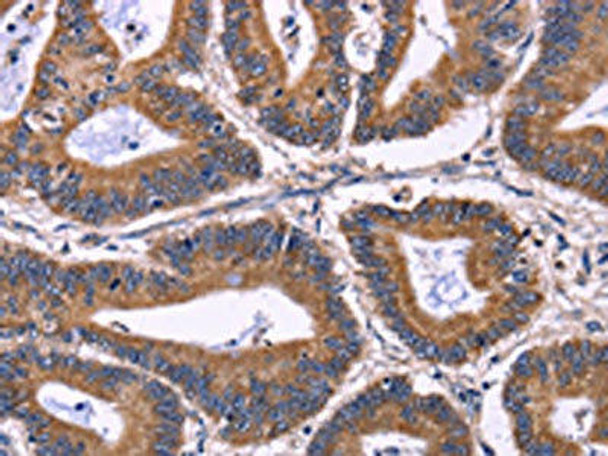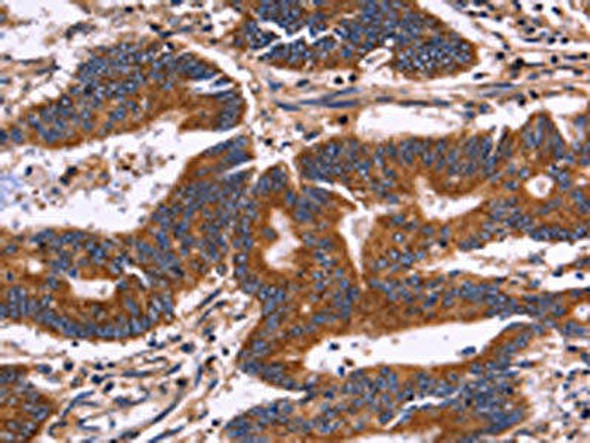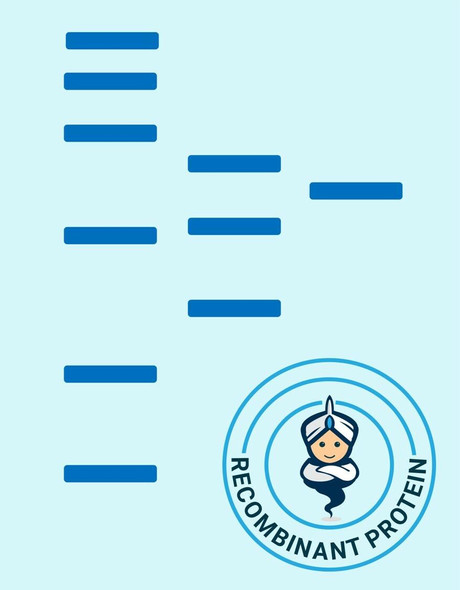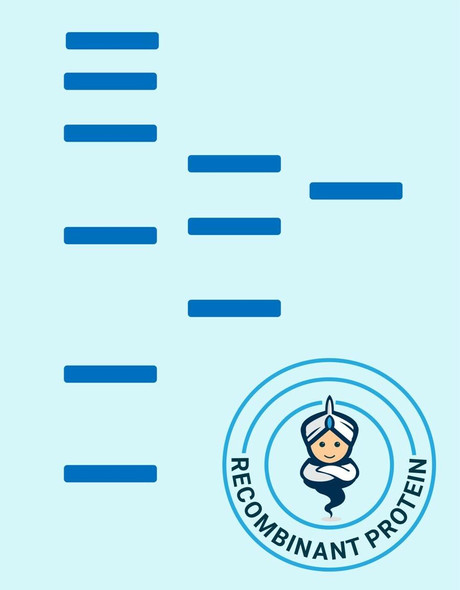Description
KIR2DL3/KIR2DL1/KIR2DL4/KIR2DS4 Antibody (PACO15954)
The KIR2DL3/KIR2DL1/KIR2DL4/KIR2DS4 Antibody (PAC015954) is a high-quality polyclonal antibody designed for research involving killer cell immunoglobulin-like receptors (KIRs), specifically KIR2DL3, KIR2DL1, KIR2DL4, and KIR2DS4. These cell surface receptors play a key role in regulating the activity of natural killer (NK) cells and T cells in the immune system.This antibody, produced in rabbits, is highly specific and reactive with human samples, making it a valuable tool for researchers studying the function and expression of KIRs in various cell types.
It is validated for use in Western blot applications, enabling the detection and analysis of these KIR proteins in a research setting.The KIR2DL3/KIR2DL1/KIR2DL4/KIR2DS4 Antibody is essential for investigating the role of KIR receptors in immune responses, particularly in the context of diseases such as cancer, autoimmune disorders, and viral infections. Understanding the function and regulation of these receptors is crucial for developing targeted therapies that modulate immune responses for therapeutic benefit.
| Antibody Name: | KIR2DL3/KIR2DL1/KIR2DL4/KIR2DS4 Antibody (PACO15954) |
| Antibody SKU: | PACO15954 |
| Size: | 50ul |
| Host Species: | Rabbit |
| Tested Applications: | ELISA, IHC |
| Recommended Dilutions: | ELISA:1:2000-1:5000, IHC:1:50-1:200 |
| Species Reactivity: | Human |
| Immunogen: | Fusion protein of human KIR2DL3/1/4/S4 |
| Form: | Liquid |
| Storage Buffer: | -20°C, pH7.4 PBS, 0.05% NaN3, 40% Glycerol |
| Purification Method: | Antigen affinity purification |
| Clonality: | Polyclonal |
| Isotype: | IgG |
| Conjugate: | Non-conjugated |
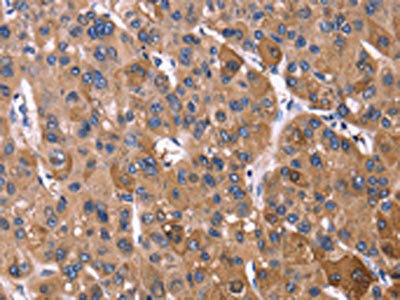 | The image on the left is immunohistochemistry of paraffin-embedded Human liver cancer tissue using PACO15954(KIR2DL3/KIR2DL1/KIR2DL4/KIR2DS4 Antibody) at dilution 1/40, on the right is treated with fusion protein. (Original magnification: x200). |
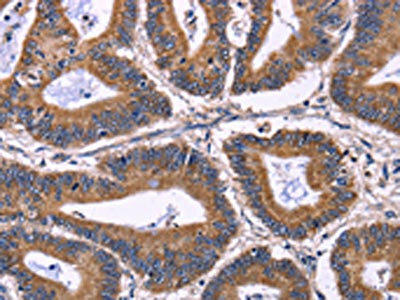 | The image on the left is immunohistochemistry of paraffin-embedded Human colon cancer tissue using PACO15954(KIR2DL3/KIR2DL1/KIR2DL4/KIR2DS4 Antibody) at dilution 1/40, on the right is treated with fusion protein. (Original magnification: x200). |
| Background: | Killer cell immunoglobulin-like receptors (KIRs) are transmembrane glycoproteins expressed by natural killer cells and subsets of T cells. The KIR genes are polymorphic and highly homologous and they are found in a cluster on chromosome 19q13.4 within the 1 Mb leukocyte receptor complex (LRC). The gene content of the KIR gene cluster varies among haplotypes, although several "framework" genes are found in all haplotypes (KIR3DL3, KIR3DP1, KIR3DL4, KIR3DL2). The KIR proteins are classified by the number of extracellular immunoglobulin domains (2D or 3D) and by whether they have a long (L) or short (S) cytoplasmic domain. |
| Synonyms: | killer cell immunoglobulin-like receptor, two domains, long cytoplasmic tail, 3/1/4/ short cytoplasmic tail, 4 |
| UniProt Protein Function: | KIR2DL3: Receptor on natural killer (NK) cells for HLA-C alleles (HLA-Cw1, HLA-Cw3 and HLA-Cw7). Inhibits the activity of NK cells thus preventing cell lysis. Belongs to the immunoglobulin superfamily. 2 isoforms of the human protein are produced by alternative splicing. |
| UniProt Protein Details: | Protein type:Receptor, misc. Chromosomal Location of Human Ortholog: 19q13.4 Cellular Component: integral to plasma membrane; integral to membrane; plasma membrane Molecular Function:protein binding; receptor activity; antigen binding Biological Process: regulation of immune response; immune response |
| NCBI Summary: | Killer cell immunoglobulin-like receptors (KIRs) are transmembrane glycoproteins expressed by natural killer cells and subsets of T cells. The KIR genes are polymorphic and highly homologous and they are found in a cluster on chromosome 19q13.4 within the 1 Mb leukocyte receptor complex (LRC). The gene content of the KIR gene cluster varies among haplotypes, although several "framework" genes are found in all haplotypes (KIR3DL3, KIR3DP1, KIR3DL4, KIR3DL2). The KIR proteins are classified by the number of extracellular immunoglobulin domains (2D or 3D) and by whether they have a long (L) or short (S) cytoplasmic domain. KIR proteins with the long cytoplasmic domain transduce inhibitory signals upon ligand binding via an immune tyrosine-based inhibitory motif (ITIM), while KIR proteins with the short cytoplasmic domain lack the ITIM motif and instead associate with the TYRO protein tyrosine kinase binding protein to transduce activating signals. The ligands for several KIR proteins are subsets of HLA class I molecules; thus, KIR proteins are thought to play an important role in regulation of the immune response. [provided by RefSeq, Jul 2008] |
| UniProt Code: | P43628 |
| NCBI GenInfo Identifier: | 1171727 |
| NCBI Gene ID: | 3804 |
| NCBI Accession: | P43628.1 |
| UniProt Related Accession: | P43628 |
| Molecular Weight: | 45kDa |
| NCBI Full Name: | Killer cell immunoglobulin-like receptor 2DL3 |
| NCBI Synonym Full Names: | killer cell immunoglobulin like receptor, two Ig domains and long cytoplasmic tail 3 |
| NCBI Official Symbol: | KIR2DL3 |
| NCBI Official Synonym Symbols: | p58; NKAT; GL183; NKAT2; CD158b; KIR2DL; NKAT2A; NKAT2B; CD158B2; KIR-K7b; KIR-K7c; KIR2DS5; KIRCL23; KIR-023GB |
| NCBI Protein Information: | killer cell immunoglobulin-like receptor 2DL3 |
| UniProt Protein Name: | Killer cell immunoglobulin-like receptor 2DL3 |
| UniProt Synonym Protein Names: | CD158 antigen-like family member B2; KIR-023GB; Killer inhibitory receptor cl 2-3; MHC class I NK cell receptor; NKAT2a; NKAT2b; Natural killer-associated transcript 2; NKAT-2; p58 natural killer cell receptor clone CL-6; p58 NK receptor CL-6; p58.2 MHC class-I-specific NK receptor; CD_antigen: CD158b2 |
| Protein Family: | Killer cell immunoglobulin-like receptor |
| UniProt Gene Name: | KIR2DL3 |
| UniProt Entry Name: | KI2L3_HUMAN |


